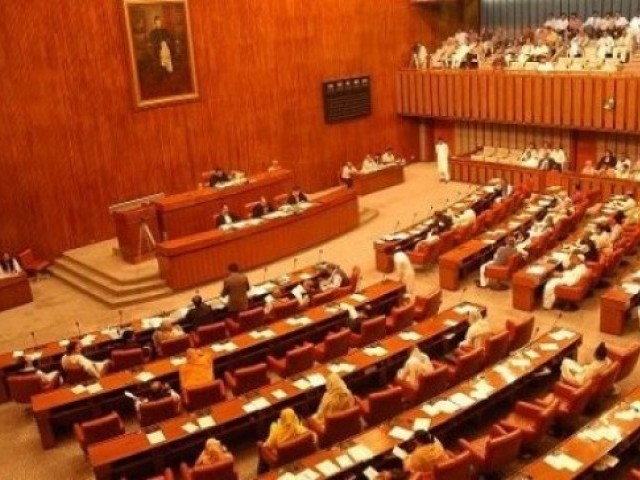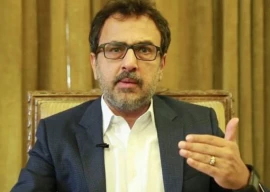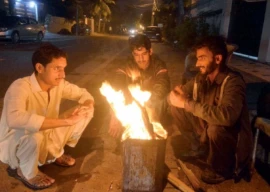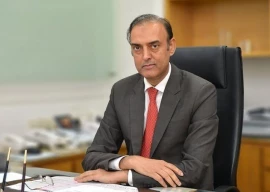
In a meeting, Chaired by committee chairman Senator Rehman Malik, the members condemned the bomb blast and expressed grief over the loss of lives. The meeting also decided to call its next sitting in Quetta to get the briefing on the terrorist attack in the provincial capital.
Malik said that such an incident should not be given any ethnic colour because bomb blasts were being carried out through a pre-planned conspiracy to destroy peace in Balochistan. "Our hearts and souls are with victim families and we share their pain and sorrow," he said.
Senate panel point out ghost employees in PSQCA
He said that behind terrorist activities in Balochistan, "the involvement of our enemy countries cannot be ruled out as such blasts are aimed at inciting sectarian clashes in the country to destabilise Pakistan". He added that he had already called a special meeting for a briefing on implementation of National Action Plan (NAP).
Earlier, committee members Sardar Shafiq Tareen said that Quetta's Hazara community had been targeted in the blast. Dr Shehzad Waseem said that any attempt to paint the terrorist incident as an ethnic one should be nipped in the bud. Javed Abbasi stressed the need for adopting a unanimous strategy, warning that terrorist incidents were increasing again.
On the serious concerns shown by the members of the committee, Malik directed that the next meeting of the committee would be held in Quetta, specifically on the agenda of the killing of people from Hazara community.
He directed the interior ministry to submit a comprehensive report on Quetta blast and apprise the committee about the actions taken so far against the terrorists and banned outfits involved in Hazaras' killings. He also sought a report about the release of activists of banned outfits in Balochistan.
Senate panel objects to PM’s BJP statement
The meeting was attended Senators Azam Swati, Dr Shehzad Wasim, Kalsoom Parveen, Javed Abbasi, Asad Junejo, Kauda Babar and Shafique Tareen, additional interior secretary, NADRA Chairman Usman Mubeen, officials from the law ministry and police officials from Sindh and Khyber Pakhtunkhwa.
The meeting was called to discuss matters pertaining to opening the offices of the National Database and Registration Authority (NADRA) in four African countries -- Mali, Zimbabwe, Zambia and Mozambique. Malik directed the ministry concerned to open NADRA offices in these countries to facilitate the overseas Pakistanis there.
Malik said that numerous overseas Pakistanis face difficulties in getting their computerised national identity cards (CNICs) and registering their children. In many countries the overseas Pakistanis faced difficulty with the online system, forcing the expatriates to travel to other neighbouring countries for getting their documents.
The NADRA chairman briefed the committee about feasibility of opening offices in the four African countries. He assured the members that NADRA's online system would be made user-friendly so that applicants could apply online. Malik directed the NADRA chairman to depute staff in the embassies of these countries to facilitate Pakistani nationals there.
Mubeen informed the committee matter of opening NADRA offices in foreign countries has been taken up by Supreme Court in which online system was preferred. He added that permission for opening offices in 10 countries was granted. Malik said that the Supreme Court should be informed about the committee's reservations.
The committee also expressed concern over the closure of some NADRA offices in Balochistan. Malik said that people from far-off areas of Balochistan travel long distances to get their CNICs. He called for setting up NADRA offices and mobile service in the far-flung areas of the province.
The committee chairman also directed for including more security features in CNICs, stressing that he had already proposed DNA test and mentioning of blood group. Mubeen told participants that the DNA test costs a lot. The cheapest DNA test costs $200, he said.
Malik also directed reopening of the NADRA and passport offices in Balochistan. He said the committee would be visiting passport and NADRA offices in Balochistan during its visit to the province. A sub-committee, headed by Kulsoom Parveen was formed to prepare suggestions for the setting up of NADRA offices in Balochistan.
A deputy inspector general of Sindh police presented inquiry report on the murder of five people in Qasr-e-Naz, Karachi. He informed the committee that the cause of death of the children and a woman was phosphine chemical which was used in fumigation. Nine people had been arrested in the case, he added.
Malik appreciated the Sindh police for their professional and scientific investigation into the matter and revealing about the most-injurious chemical of phosphine. He said that awareness should be created among the masses about use of phosphine in household.

















COMMENTS
Comments are moderated and generally will be posted if they are on-topic and not abusive.
For more information, please see our Comments FAQ